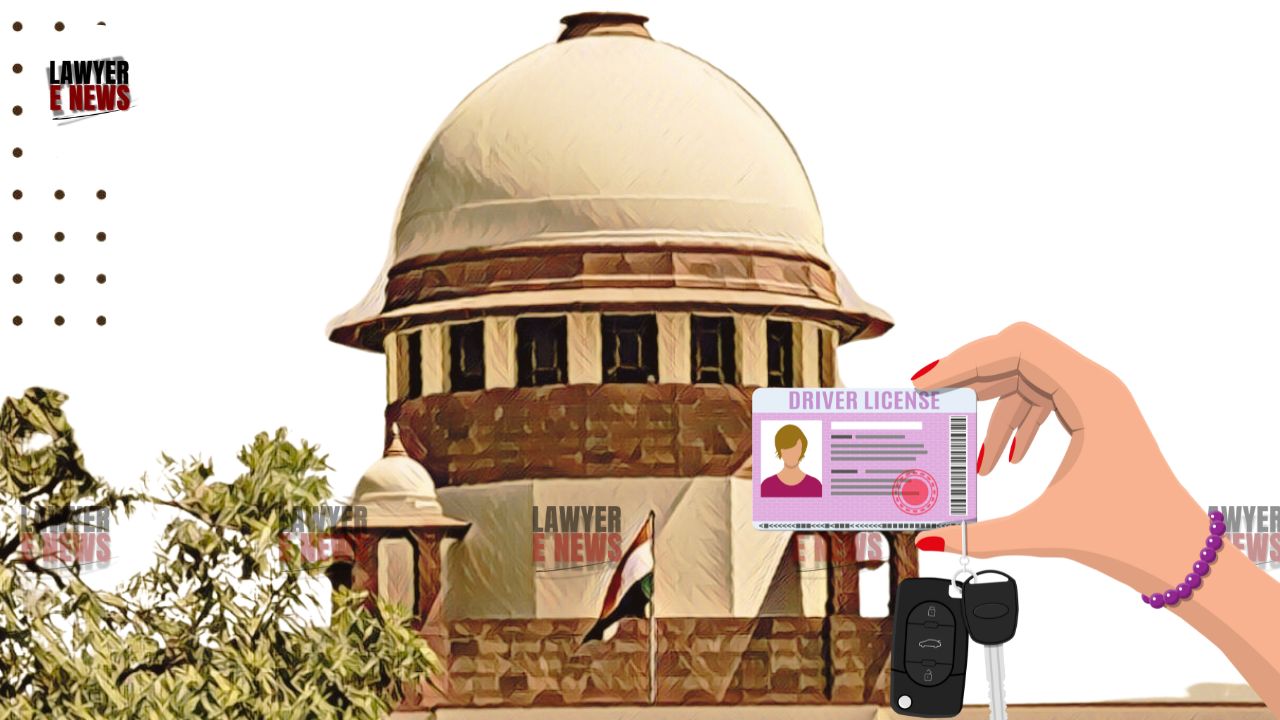-
by Admin
15 February 2026 5:35 AM



In a significant ruling delivered on November 6, 2024, the Supreme Court of India reaffirmed that holders of Light Motor Vehicle (LMV) licenses are permitted to drive transport vehicles with a gross vehicle weight not exceeding 7,500 kg without the need for a separate endorsement. This decision, delivered by Justice Hrishikesh Roy, upholds the interpretation in Mukund Dewangan v. Oriental Insurance Co. Ltd. (2017), affirming the LMV license’s validity for certain light transport vehicles, including goods carriers and minibuses that fall within the specified weight limit.
The controversy around the scope of LMV licenses under the Motor Vehicles Act, 1988, stems from varying interpretations over whether an LMV license holder can operate light transport vehicles without obtaining a separate license endorsement. This question first came into prominence in Mukund Dewangan (2017), where a three-judge bench held that an LMV license permits the holder to drive transport vehicles under 7,500 kg. However, in 2019, the decision in M/s Bajaj Alliance General Insurance Co. Ltd. v. Rambha Devi & Ors. questioned the earlier ruling, pointing out that the Mukund Dewangan judgment had overlooked several statutory provisions under the Motor Vehicles Act and Central Motor Vehicles Rules.
Subsequently, a reference was made to a larger bench to revisit the Mukund Dewangan interpretation, particularly concerning provisions related to road safety, licensing qualifications, and the distinction between private and commercial vehicle categories.
Section 2(21) of the Motor Vehicles Act defines an LMV as a motor vehicle with a gross vehicle weight not exceeding 7,500 kg. The Court noted that this definition includes transport vehicles within the specified weight limit, thereby permitting LMV license holders to operate such vehicles without a specific "transport" endorsement.
Justice Roy stated, "The use of the term ‘means’ in Section 2(21) signifies an exhaustive and inclusive definition, encompassing both transport and non-transport vehicles up to 7,500 kg without requiring additional endorsements."
The Court examined the interplay between Section 3(1) and Section 10 of the Motor Vehicles Act, where Section 3(1) stipulates the necessity of an endorsement for driving transport vehicles. The Court clarified that this endorsement requirement primarily applies to medium and heavy transport vehicles exceeding the 7,500 kg threshold.
By interpreting Section 10(2)(d) in conjunction with Section 2(21), the Court concluded that the licensing requirements for light transport vehicles should align with those for other LMVs.
Addressing concerns raised by the insurance companies regarding road safety, the Court emphasized that empirical data does not support a direct link between road accidents and LMV-licensed drivers operating light transport vehicles. It held that the existing training requirements for LMV licenses provide adequate skills for drivers to handle vehicles within the prescribed weight limit, thereby mitigating safety risks.
The Court noted, "No empirical data links LMV-licensed drivers to increased road accidents solely on account of operating light transport vehicles. The additional licensing requirements should be focused on medium and heavy vehicles for coherent regulatory enforcement."
While affirming the LMV license's applicability, the Court recommended that the legislature consider further classification within the LMV category, such as creating distinct sub-classes (e.g., LMV Class 1 and LMV Class 2) to provide greater clarity and reduce future litigation.
"The legislative intent would be better served with a classification that distinctly addresses both private and commercial uses within the LMV category," the judgment suggested.
Decision and Rationale
The Supreme Court’s decision resolved the following issues in favor of LMV license holders:
Validity of LMV License for Light Transport Vehicles: The Court upheld that an LMV license holder does not need an additional endorsement to operate transport vehicles below the 7,500 kg weight limit.
Scope of Section 3(1): The requirement for a specific transport endorsement does not override the LMV definition in Section 2(21) for light transport vehicles.
Additional Licensing Requirements: The Court clarified that more stringent training and eligibility conditions under the Motor Vehicles Act and Rules only apply to medium and heavy transport vehicles, not to light transport vehicles operated with an LMV license.
Mukund Dewangan Affirmed: The Court reaffirmed the interpretation in Mukund Dewangan (2017), ruling it was not per incuriam despite having overlooked certain provisions. The ruling aligns with a harmonious interpretation of the statutory scheme.
The decision significantly impacts thousands of drivers across India who hold LMV licenses and operate light transport vehicles as a means of livelihood. It affirms their right to drive such vehicles without facing the additional financial and procedural burden of obtaining a separate transport endorsement. The ruling is also expected to reduce administrative complexity in the licensing regime and address livelihood concerns without compromising road safety.
The Supreme Court’s judgment in Bajaj Alliance General Insurance Co. Ltd. v. Rambha Devi & Ors. reaffirms the Mukund Dewangan precedent, ensuring that LMV license holders can operate light transport vehicles up to 7,500 kg without needing a separate endorsement. By resolving the interpretative ambiguities in favor of LMV license holders, the Court has clarified the legal position under the Motor Vehicles Act, while also encouraging the legislature to address potential gaps in the licensing framework through future amendments.
Date of Decision: 06 November 2024
M/s Bajaj Alliance General Insurance Co. Ltd. v. Rambha Devi & Ors.
